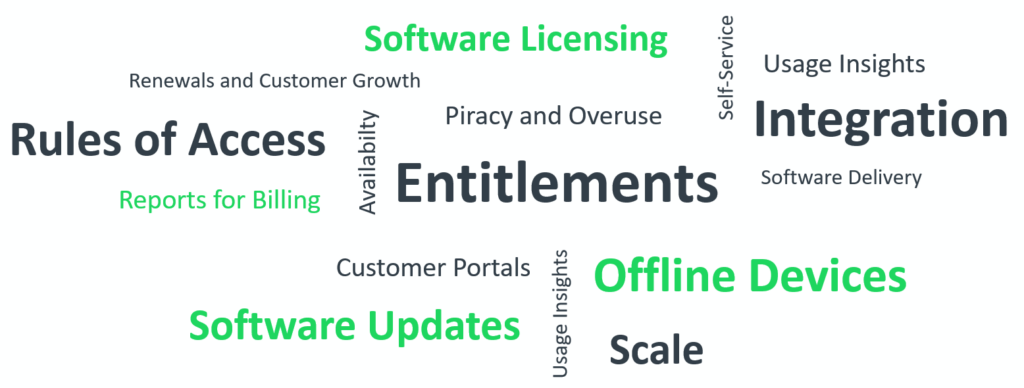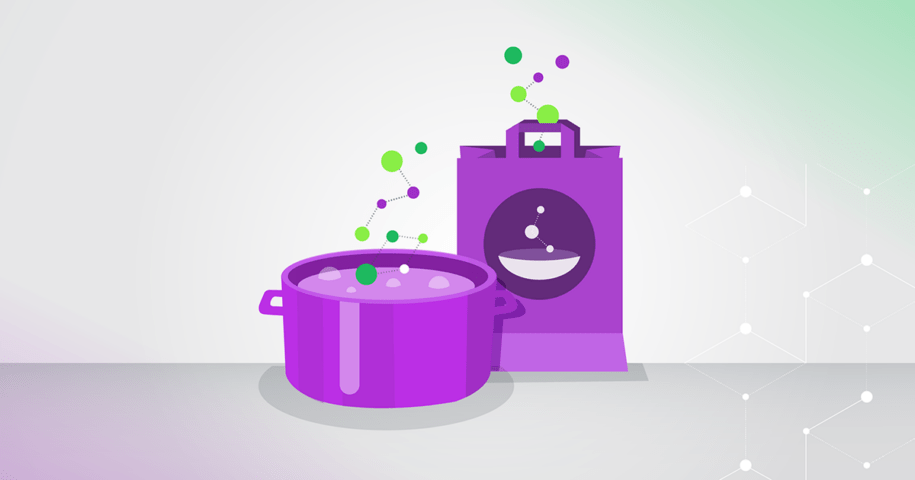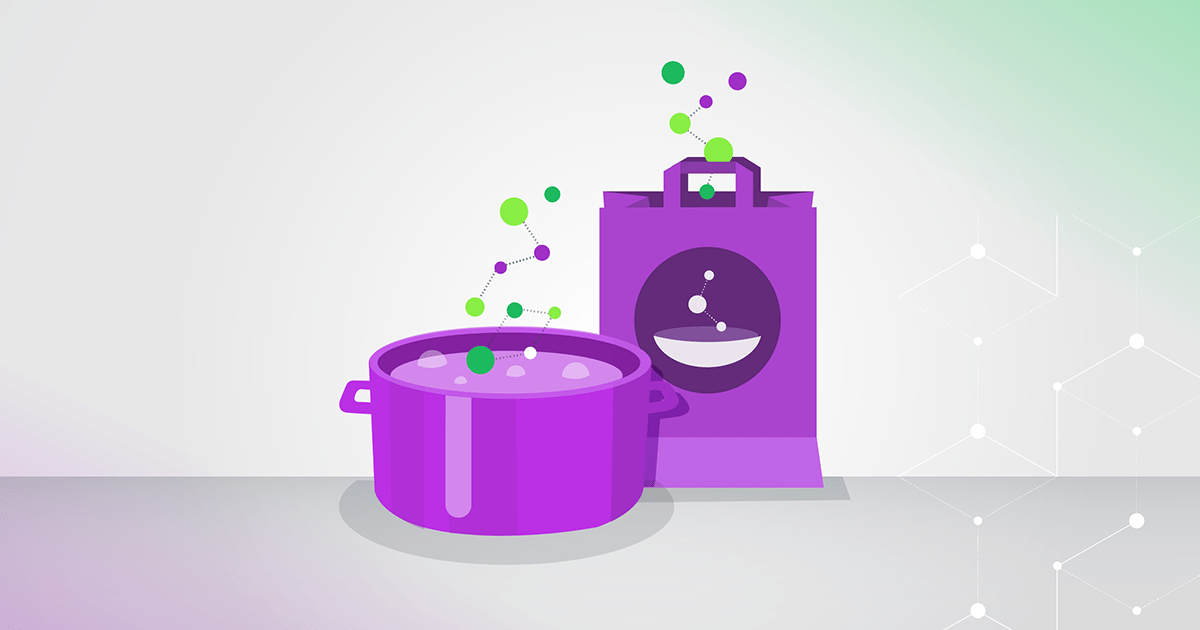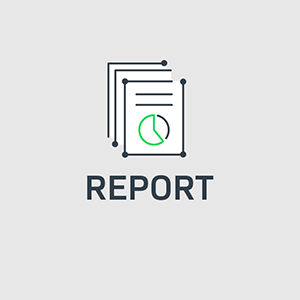To build, or to buy? That is the question technology companies typically face when evaluating software monetization solutions.
If you develop your own products, it can be natural to assume you should code everything in-house; from flashy features that customers crave to back-office infrastructure that makes everything tick.
After all, that’s why you employ your engineering team, right?
However, while this approach may sound appealing, there are multiple benefits to adopting a purpose-built licensing, entitlement management, and compliance platform, as illustrated in this short video:
Play to Your Strengths
Ultimately, you want to maximize the talents of your team, empowering developers to focus on product enhancements rather than underlying mechanisms.
Award-winning restaurants keep their chefs in the kitchen, giving complete freedom to create dishes that entice customers to come back for more, with zero expectation to deliver food, collect payments, or watch out for ‘dine and dash’ violations.
Ideally, your business should function in a similar fashion, enabling engineers to concentrate on core competencies that drive recurring revenue rather than backend logistics that distract from product roadmaps.
With the right framework, operations should flow seamlessly, allowing you to accelerate time-to-market, increase customer retention, and boost your company valuation.
This is where purpose-built software monetization solutions come into play.
Benefits of Software Monetization Solutions
Implementing a commercial system can help you introduce new monetization models, reduce operational overhead, and tackle compliance issues as part of a comprehensive revenue optimization plan.
Here are some of the key advantages you can expect to leverage from specialized software monetization solutions:
Business Agility
- Automation: Commercial licensing and entitlement systems typically enable a higher degree of automation, integrating with other business systems – such as your CRM and payment platform – to streamline the quote-to-cash process, reducing the need for manual interventions.
- Innovation: With usage-tracking capabilities, the opportunity to offer metered, consumption, or device-based monetization models can open new revenue streams, giving you a competitive edge with unique licensing and pricing packages that meet specific customer needs.
- Expansion: Purpose-built software licensing solutions are designed to scale with ease, making them suitable for suppliers that need to rapidly deliver large volumes of licenses on a flexible basis.
Revenue Generation
- Retention: Tracking usage highlights churn risk, flagging inactive users so you can proactively attempt to re-engage them ahead of renewal time, which is vital as retention is key to growing ARR.
- Conversion: By analyzing product usage data, you can detect piracy and collect unauthorized use reports to form targeted sales campaigns, delivering ready-made infringement leads into your CRM, enabling you to convert piracy into profit.
- Precision: With usage insights, you’re able to monitor overuse and misuse, checking whether license terms – such as installation limits or geographical restrictions – are being adhered to, allowing you to take action where necessary.
Operational Efficiency
- Consolidation: By standardizing on a single licensing and entitlements platform across all product lines – including on-premises, SaaS, and hybrid deployments – you’ll create a unified customer experience and have a single source of truth for data-driven decision making.
- Evolution: If your growth strategy involves M&A activity, a purpose-built platform can adapt at speed, allowing you to easily integrate acquired products into your processes rather than manually stitching together multiple, disjointed software monetization solutions.
- Satisfaction: A modern, centralized system enables self-service, allowing customers and channel partners to directly manage licenses and entitlements without assistance, resulting in fewer support tickets.
DIY or Collaboration?
Just because you produce software doesn’t mean you have to develop the licensing, entitlements, and compliance components in-house, much in the same way you wouldn’t build your own accounting or payroll system.
Getting these factors right is essential to the success of your business, so it pays to use proven technology that can manage every stage of the licensing lifecycle.

A dedicated platform frees resources to focus on revenue-generating initiatives rather than maintaining a homegrown system that relies on individual know-how, which is often undocumented – putting stability and scalability at risk.
To drive new and recurring revenue, you need a secure solution that allows you to swiftly respond to market demands and competitive forces, accelerating your time-to-market with advanced pricing and packaging functionality and automatic update delivery.
You could try to build and maintain it yourself, but you have to weigh up whether your team has the required expertise or if their time could be better spent elsewhere – especially when fully-formed alternatives are available.
Software Monetization Consultancy
If you’re in the process of considering which approach is best for you, our software monetization team is on-hand to answer any queries you may have, so please reach out.
With experience in protecting $40 billion in annual recurring revenue, and having helped recover $3.6 billion in lost revenue via Compliance Intelligence, our in-house experts have decades of industry experience and are happy to share practical advice.
On average, our customers achieve the following results with our solutions:
- 1-3% increase in renewal rates
- 1-5% savings due to automated software delivery and updates
- 5-15% recovery in lost revenue (intentional and unintentional overuse)
- 1-3% savings in support tickets, with fewer escalations related to licensing
You may want to read our Infor F9 and Teradici success stories, which offer insights into how Revenera technology can support your objectives to increase revenue while streamlining back-office operations.
Additionally, for a deeper dive into the ‘build or buy’ debate, this on-demand webinar details real-world case studies and questions to ask when assessing purpose-built software monetization solutions: The R&D Dilemma: Build or Buy Systems for Entitlement, Licenses and Usage Management?
You can also download this blog post as a PDF:
Build vs. Buy: A Product Manager’s Guide to Software Monetization




